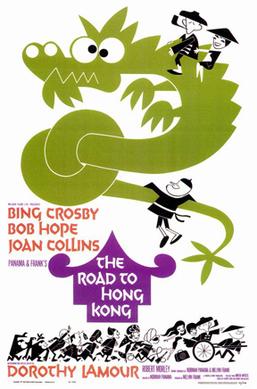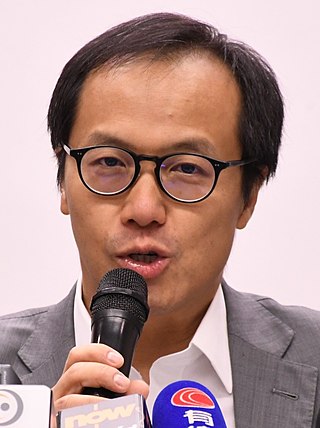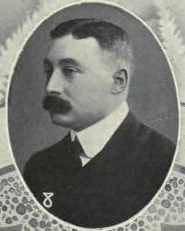Related Research Articles

David Clive Wilson, Baron Wilson of Tillyorn, is a retired British administrator, diplomat and Sinologist. He was the penultimate Commander-in-Chief and 27th Governor of Hong Kong. He served as Lord High Commissioner to the General Assembly of the Church of Scotland, the British Monarch's representative to the Assembly, in 2010 and 2011. He is also one of the two living former governors of Hong Kong with Chris Patten. He retired from the House of Lords on 12 February 2021 after sitting as a crossbencher for over 28 years.
Patrick Wong is an accountant and a former politician in British Columbia, Canada. He was a member of the Legislative Assembly of British Columbia from 2001 through 2005, representing the riding of Vancouver-Kensington. He served as the Minister of State for Immigration and Multicultural Services from September 2004 to April 2005. He is a member of the British Columbia Liberal Party.

Sir Robert Brown Black was a British colonial administrator who served as Governor of Singapore from 1955 to 1957, and Governor of Hong Kong from 1958 to 1964.
Lawrence Kadoorie, Baron Kadoorie, CBE was a Hong Kong industrialist, hotelier, photographer and philanthropist.

The Road to Hong Kong is a 1962 British semi-musical comedy film directed by Norman Panama and starring Bing Crosby and Bob Hope, as well as Joan Collins, with an extended cameo featuring Dorothy Lamour in the setting of Hong Kong under British Rule. This was the seventh and final installment in the Road to … series and the only one made without the involvement of Paramount Pictures, though references to the others in the series are made in the film and shown in Maurice Binder's opening title sequence.

Sir Denys Tudor Emil Roberts was a British colonial official and judge. Joining the colonial civil service as a Crown Counsel in Nyasaland in 1953, he became Attorney General of Gibraltar in 1960. In 1962, he was posted to Hong Kong as Solicitor-General, and was successively promoted to Attorney-General in 1966, Colonial Secretary/Chief Secretary in 1973 and Chief Justice in 1979. He was the first and only Attorney-General to become both Colonial Secretary in Hong Kong. Never having been a judge before, he was appointed as Chief Justice of the Supreme Court in 1979 and was the first and only Colonial Secretary of Hong Kong to receive such appointment.

The Royal Army Pay Corps (RAPC) was the corps of the British Army responsible for administering all financial matters. It was amalgamated into the Adjutant General's Corps in 1992.

Sir George Thomas Michael O'Brien was a British colonial official who served as Colonial Secretary of Hong Kong from 1892 to 1895, and as Governor of Fiji and High Commissioner for the Western Pacific from 1897 to June 1901.
Accountancy in Hong Kong is regulated by the HKICPA under the Professional Accountants Ordinance. The auditing industry for limited companies is regulated under the Companies Ordinance, and other Ordinances such as the Securities and Futures Ordinance, the Listing Rules, etc.

Kenneth Leung Kai-cheong is a democratic Hong Kong politician formerly serving as a member of the Legislative Council for the Accountancy functional constituency. Professionally, he is a tax adviser and accountant. On 11 November 2020, he was disqualified from the Legislative Council, along with three other lawmakers of the pan-democratic camp, by the central government in Beijing on request of the Hong Kong government. A mass resignation of pan-democrats the same day left the Legislative Council without a substantial opposition.

Richard Arthur Brabazon Ponsonby-Fane was a British academic, author, specialist of Shinto and Japanologist.
Sir Gordon Menzies Macwhinnie was a key figure in Hong Kong before its return to the People's Republic of China.
The 1988 Hong Kong Legislative Council election was an indirect election for members of the Legislative Council of Hong Kong (LegCo); was held on 22 September 1988. It was the second ever election of the Legislative Council in Hong Kong history based on the 1987 Review of Developments in Representative Government, as the Government's democratisation process according to the agreement of the Sino-British Joint Declaration. There were 12 members elected by Electoral Colleges, 14 members from functional constituencies.
Sanford Yung Yung-tao was a Hong Kong accountant, politician and racehorse owner.

Arthur Rylands Lowe was a British accountant and the first full-time professional accountant in Hong Kong.
Horace Percy Smith was a British chartered accountant in Hong Kong.
Li Fook-shu, OBE, FCA, JP was a Hong Kong businessman and politician. He was the chairman of the Bank of East Asia and unofficial member of the Executive Council and the Legislative Council.
The Li family are a banking dynasty in Hong Kong and associated with the Bank of East Asia, although its family members have held positions in various other businesses, as well as the Hong Kong Government, the Hong Kong Judiciary, and the Hong Kong Legislative Council. While the Li family spans many generations and has many members, this page only includes those who were directly involved with the running of the Bank of East Asia. The "first generation" refers to the generation that founded the Bank.
Anarchism in Hong Kong emerged as part of the Chinese anarchist movement, when many anarchists sought refuge from the Qing Empire in the territory. It grew alongside the Chinese revolutionary movement, before the territory again became a safe haven for anarchists, following the Communist victory in the Chinese Civil War. Since then anarchists have formed a part of the Hong Kong opposition movement, first to British colonial rule and then to the rising authoritarianism of the Government of Hong Kong.
Ho Ying-chie was a Hong Kong businessman and philanthropist. He made a fortune as chairman of Hong Kong Tobacco.